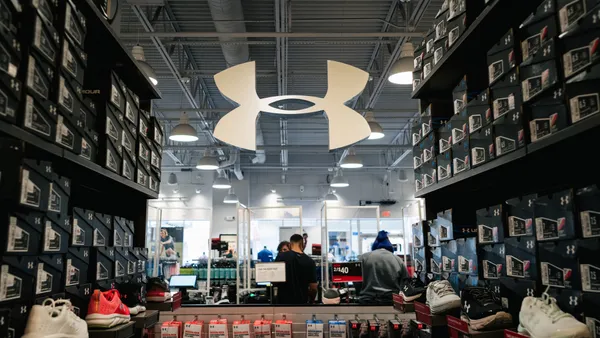Dive Brief:
-
L Brands on Wednesday said that Sycamore Partners had delivered a notice to terminate their agreement, announced in February, where the private equity firm was set to take a 55% interest in Victoria's Secret for about $525 million, with L Brands retaining 45%. The retailer called the attempt "invalid," according to a statement emailed to Retail Dive.
-
L Brands also said that Sycamore on Wednesday asked the Chancery Court of Delaware to allow it to rip up the agreement. The firm is now saying that, by shuttering stores and laying off employees in recent weeks, L Brands violated its obligation to conduct business as the companies had agreed, according to court papers cited by several news outlets and analysts. Sycamore didn't immediately return Retail Dive's request for comment.
-
L Brands said it "will vigorously defend the lawsuit and pursue all legal remedies to enforce its contractual rights, including the right of specific performance," and that it's continuing to work toward closing the deal, according to the company email.
Dive Insight:
In February, when coronavirus headlines were still relegated to what was going on in China, Sycamore seemed to get the best end of this deal, with some analysts raising eyebrows at the relatively low price.
That's apparently not how the private equity firm sees it today. L Brands stock plummeted around 20% as of press time on the news that the transaction, set to close this quarter, was on the rocks, reflecting shareholders' belief that "termination of the deal would have a meaningfully more negative impact on fundamentals and cash flow for LB (both in terms of the loss of proceeds and need to fully absorb an ailing business)," MKM Partners Managing Director Roxanne Meyer wrote in emailed comments.
While Sycamore can't use the COVID-19 pandemic has an outright excuse to quit the tie-up — a standard clause prevents that unless Victoria's Secret could somehow be seen as suffering more than its peers — its reasoning is nevertheless related to the outbreak. Sycamore points to store closures, employee furloughs, pay cuts, withholding rent and other extreme measures as breaching its agreement with L Brands, MKM notes.
That puts L Brands in a tight spot, considering these were arguably prudent business decisions or, in the case of government-ordered closures, out of its hands. Meyer was among several analysts expressing skepticism about Sycamore's argument, saying that, while it's hard to know the view of the courts at an unprecedented time, "our bias is that the deal will continue to go through."
"[S]tore closures were ultimately mandated, and LB's actions were in line with practices across the entire retail sector, with many retailers making more significant concessions," she said. "We also believe it is critical to keep in mind that LB is still to retain 45% of the business and thus has a vested interest in its turnaround."
But Sycamore may be on solid footing, according to Alon Kapen, a partner at law firm Farrell Fritz. L Brands may have needed to spell out what it might be allowed to do, even under extreme circumstances, or perhaps should have "picked up the phone" and discussed its moves with Sycamore, in light of their pending agreement, he said.
"Remember this is a contract between two grown-ups, and these are extraordinary actions," Kapen told Retail Dive in an interview. "L Brands will need to point to the provisions of the agremeent that would allow them to take actions like this."















